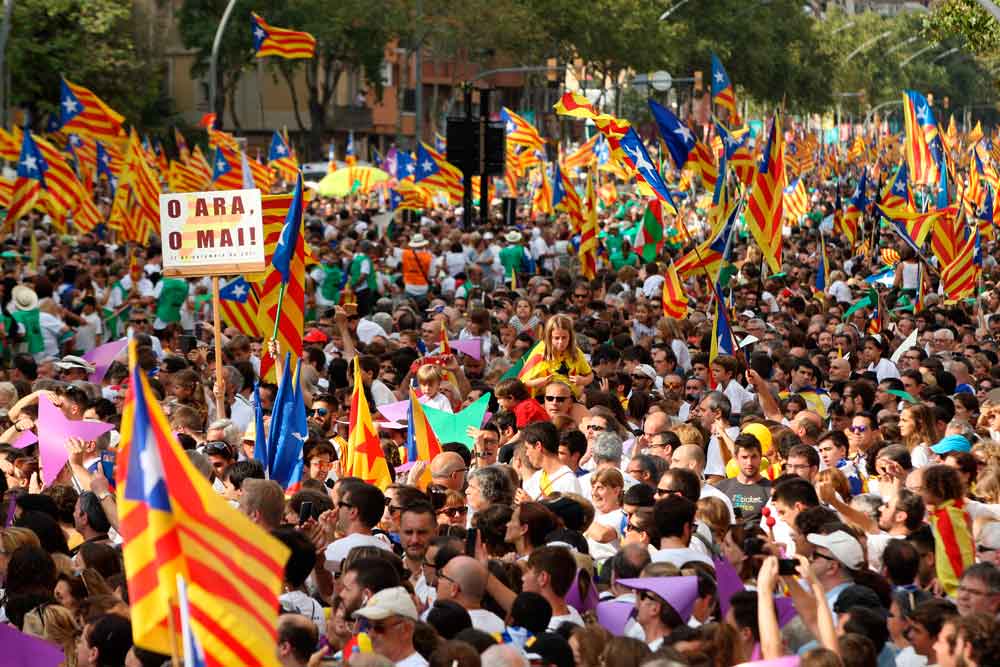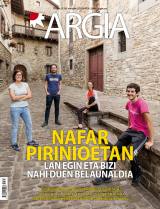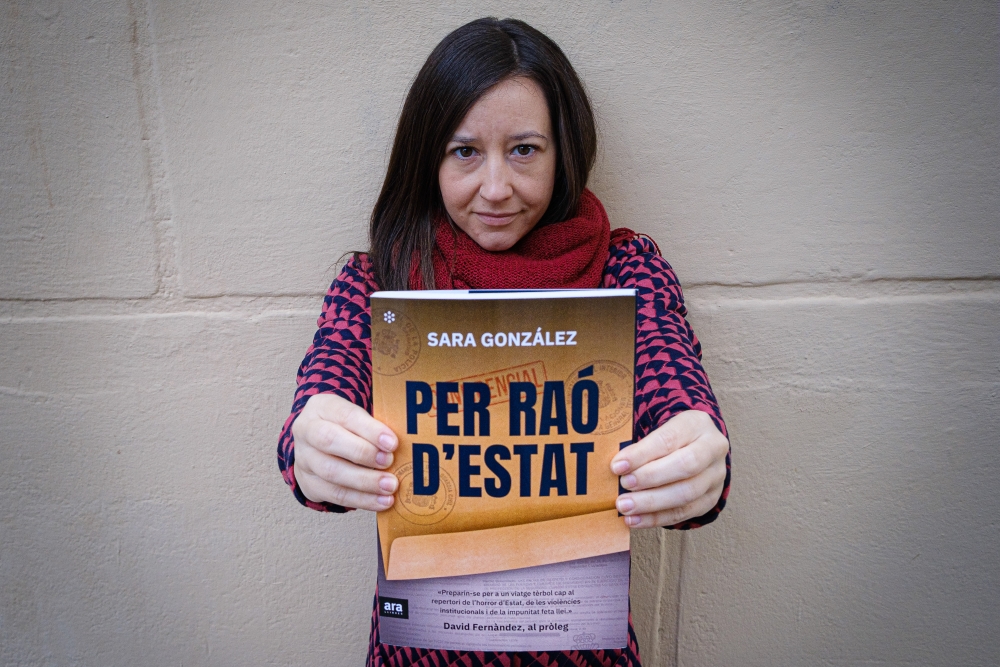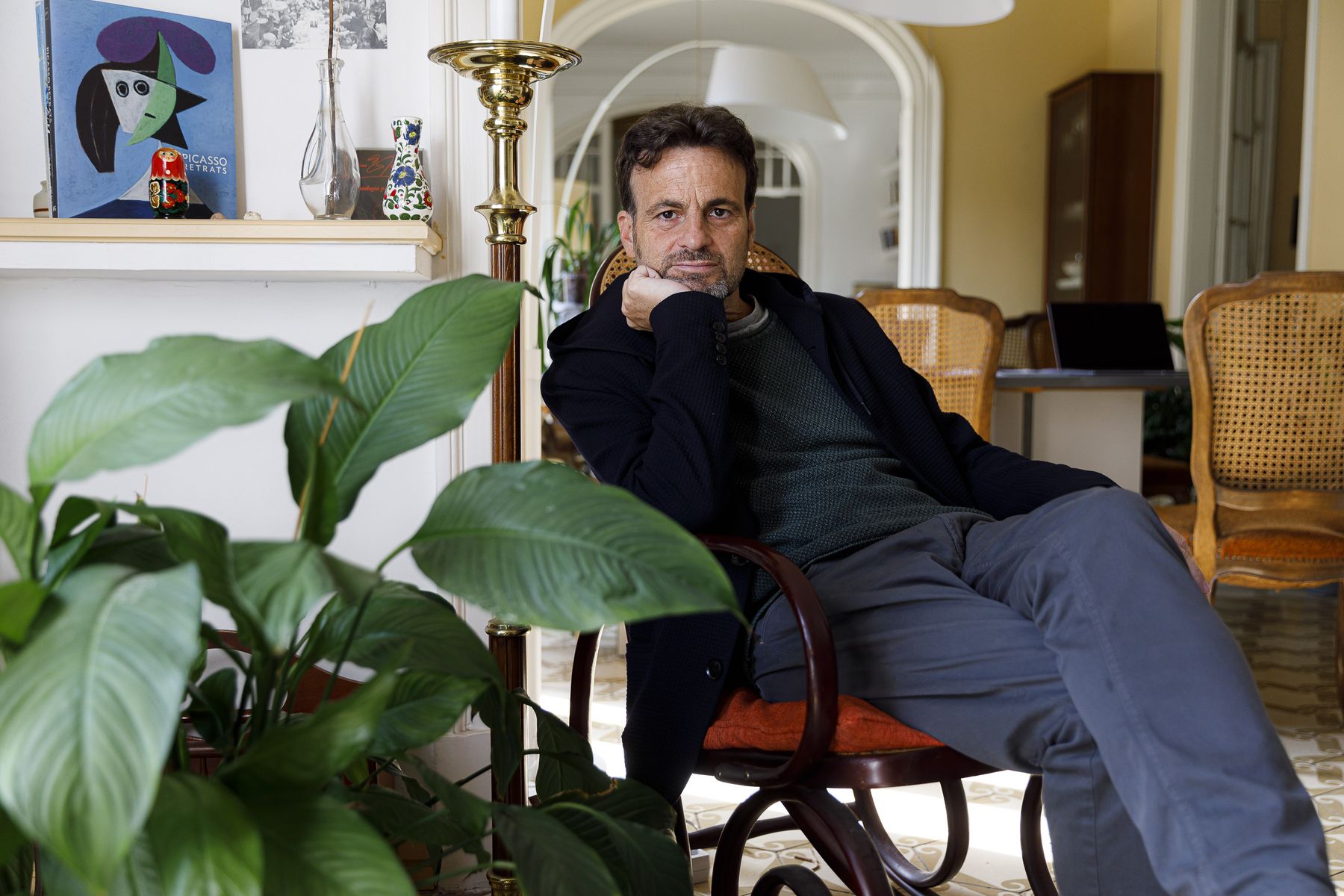From the Diada looking at the Catalan Republic
- The Diada of Catalonia, on 11 September, is already on the top. The last six have been special and this year will be more special: a referendum on self-determination will be held on 1 October. How? Nobody knows. The Government of Madrid says no, the Government of Catalonia says yes. This week the Catalan institutions are facing the toughest phase of disobedience that has been carried out so far.

How do you imagine the beginning of the referendum day? "It is not a referendum with total normality, because threats and attempts to delegitimize are going to be there until the last minute. Surely, we will not be voting at 9 o'clock or 8 o'clock in the morning, but at 6 o'clock to give a full guarantee, so that electoral spaces can be opened, so as to avoid sabotage. I imagine that's how it's going to start, and I don't think it ends at home. When the electoral spaces are closed, we have to be on the street, if the yes win the state will want to delegitimize these results and they will have to be maintained through mobilizations”.
This was said by Cup Member Albert Botran in an interview published in the digital journal 'El Mon'. At present it is not easy to imagine that this moment may come, but it will come, the Parliament and the Government of Catalonia will take the final steps for the referendum to take place on 1 October: “Do you want Catalonia to be an independent state as a republic?” That is the question that the citizens will have to answer.
The Catalan Government says that if the yes wins, the Catalan Republic will be launched on 2 October through the Law for the Legal Transition and the Creation of the Republic, also known as the Disconnection Act, presented last week. Well in secret, but the Generalitat has almost 10,000 ballot boxes ready.

Spain will not activate special legislation
What will the Spanish Government do to prevent the referendum? That is what is on everyone’s lips and what Mariano Rajoy keeps. For months there has been much talk of different alternatives, the best known of which is Article 155 of the Spanish Constitution. The PP acknowledges that there is no time for its entry into force – it would require a procedure of about four months – and furthermore believes that it would not be appropriate at this time.
This is at least believed by the analyst of La Vanguardia Enric Juliana, who is well acquainted with the intricacies of the powers of Madrid, in his article signed at the end of July. In his opinion, in Madrid "the Club of 155 is under great pressure" and also to stop the president of the Generalitat, Carles Puigdemont, but the pp is not in that position. The pp would like to see what Juliana calls the Aranzadi Brigade, that is, using the extensive judicial network that the rule of law has, not triggering anything exceptional.
Although the right-wing newspaper La Razón published on 30 August last, this legal line will prevail and the Spanish Government will appeal successively according to the laws, decrees or rules that the Catalan institutions adopt to hold the referendum.
On the same day, the Government delegate in Spain, Enric Milló, reaffirmed in Catalunya Ràdio the same line: at the moment autonomy will not be suspended and there will be no disqualification of Puigdemont, “but there will be no referendum”. In Milló’s words, there are differences between the 2014 and now referendums: “On this occasion the Constitutional Court has banned the referendum on five occasions.” It is worth remembering that consultation on 9 November was already banned in 2014, that the previous day was ratified and that it was finally done.
On this occasion, however, Madrid says that it is going to ban its cost or its cost. How? At least I had left a clue when asked about how to measure: “Physically avoiding the vote, I don’t think otherwise,” he replied. And who can do it? State Security Forces and Bodies. But who? The 17,000 Mossos, otherwise, it is not easy for thousands of Spanish policemen and civil guards to disperse without a state of emergency to kidnap trash in Catalonia.
In the framework of the decisions taken against the referendum by the Constitutional Court, Moncloa may ask for a series of measures which, on this occasion, will appear to mobilise the State Prosecutor’s Office. It is very difficult for a judge, at the request of the prosecution, to order the Mossos to kidnap all the stationery in the polling stations, but everything is possible.
Moreover, this possibility gained strength when on 29 August last Justice Margarita Robles, a member of the PSOE, fanned her saying that she did not mention the police directly, but that justice should avoid crime and in this case the referendum. Through these statements, the PSOE has given decisive support in this possibility to the pp of Madrid.
However, it will not be so easy and the director of Vilaweb, Vicent Partal, sees it impossible to hijack the boxes: “How are the 8,000 ballot boxes distributed in 948 municipalities to be withdrawn? Will they dare to send someone knowing that they will be defended by the Catalan police and also by the voters? What will they do when they take one ballot box and another appears, and everything is on the lookout for all the world's press?
Trapero instead of deciding
Outside Catalonia, in general, few people question whether at the last moment they have to obey the Spanish Justice. Juliana is also of this kind, but he has a glimmer of doubt among the lines, especially when he says that the leader of the Mossos, Josep Lluis Trapero, is at this moment “the strongest person in Catalonia”: “The police chief is the key character of today, as he will be in October instead of choosing. Great pressure for a hard man raised in Santa Coloma de Gramenet”.

There may be different hypotheses and variants. For example, to hold a referendum, but, as a result of the obstacles that Madrid has put in, to reduce the turnout a great deal. In any case, letting the referendum take place can also be a risk to Rajoy, as participation can escape him from his hands as in 2014. At that time, the turnout was 2,345,000 votes: 1.897,274 in favour of the new state and 232,848 against.
We don't have data on the electoral roll, but in the 2015 regional elections the number of people censored was 5,510,853, and it's expected to be similar. There is no talk of figures, but for the referendum to be a minimum success, it would surely have to exceed the participation of 3,000,000 pesetas and the yes should exceed 2,800,000 votes. The meeting of En Comú on 9 will be key to the outcome of the meeting, after which its bases will have to ratify what was agreed between 12 and 14. The decision, adopted on 8 July, gave its "yes" to participation, but not as a binding referendum, but as a political act.
Madrid-Barcelona, clash of legitimacy
Some of the toughest moments will probably occur this week, when the Referendum Act is passed in the Catalan Parliament on 6 or 7. The so-called Disconnection Act, which could be on the 20th and 21st days, will then be adopted. What is not clear is when they will be adopted in the Basque Parliament, because it will depend on what is being done with Spanish legislation. It may also be the case that the Government adopts the Referendum Act by decree.
In any event, the Government will immediately convene the referendum to be held in the Autonomous Community. Everything indicates that at least the Referendum Act would be adopted before the Diada on 11 September; and on 15 September the official referendum campaign will begin. Among the sovereigns, it is increasingly stated: “It’s time to do everything at once, accept and do it.” The most serious chain of disobedience of orders to date will begin when any of these steps are taken.
.jpg)
The Spanish Constitutional Court and the Spanish Government are already prepared to respond to the ruling of the Constitutional Court. Sources from the Rajoy Government have confirmed that the resources to be put forward have already been written, and that the plenary session will be held on 5, 6 and 7 this month. The next investiture session will be held on 19, 20 and 21 November.
Will the Constitutional exercise all its powers? It's one of the questions in the air. In fact, with the admission to the proceedings of the resources not only can it stop anything, but it can sanction if it disobeys its orders, after the reforms carried out last year by pp. However, he has pointed out that he will not use the powers of punishment, as there is not enough consensus within the internal sphere.
On 2 October we will see where Catalan society is going, because its possibilities are extreme: Republic of Catalonia or regional elections. The President of the Government of Spain, Soraya Sáenz de Santamaría, transferred PDCAT Deputy, Jordi Xuclà, to Congress: “I think we are in a position to win 10-0”; receiving the blow and “carefully with the humiliations,” Xuclà-replied, removing their footprint is difficult and last from generation to generation.”
Abokatua, aktibista soziala eta Espainiako Kongresuko diputatua da Jaume Asens (Bartzelona, 1972). Urtarrilaz geroztik, Pablo Iglesias ordezkatu du Unidas Podemos talde parlamentario konfederalaren presidentetzan. Abokatu gisa, giza eskubideen eta mugimendu sozialen defentsak... [+]
























